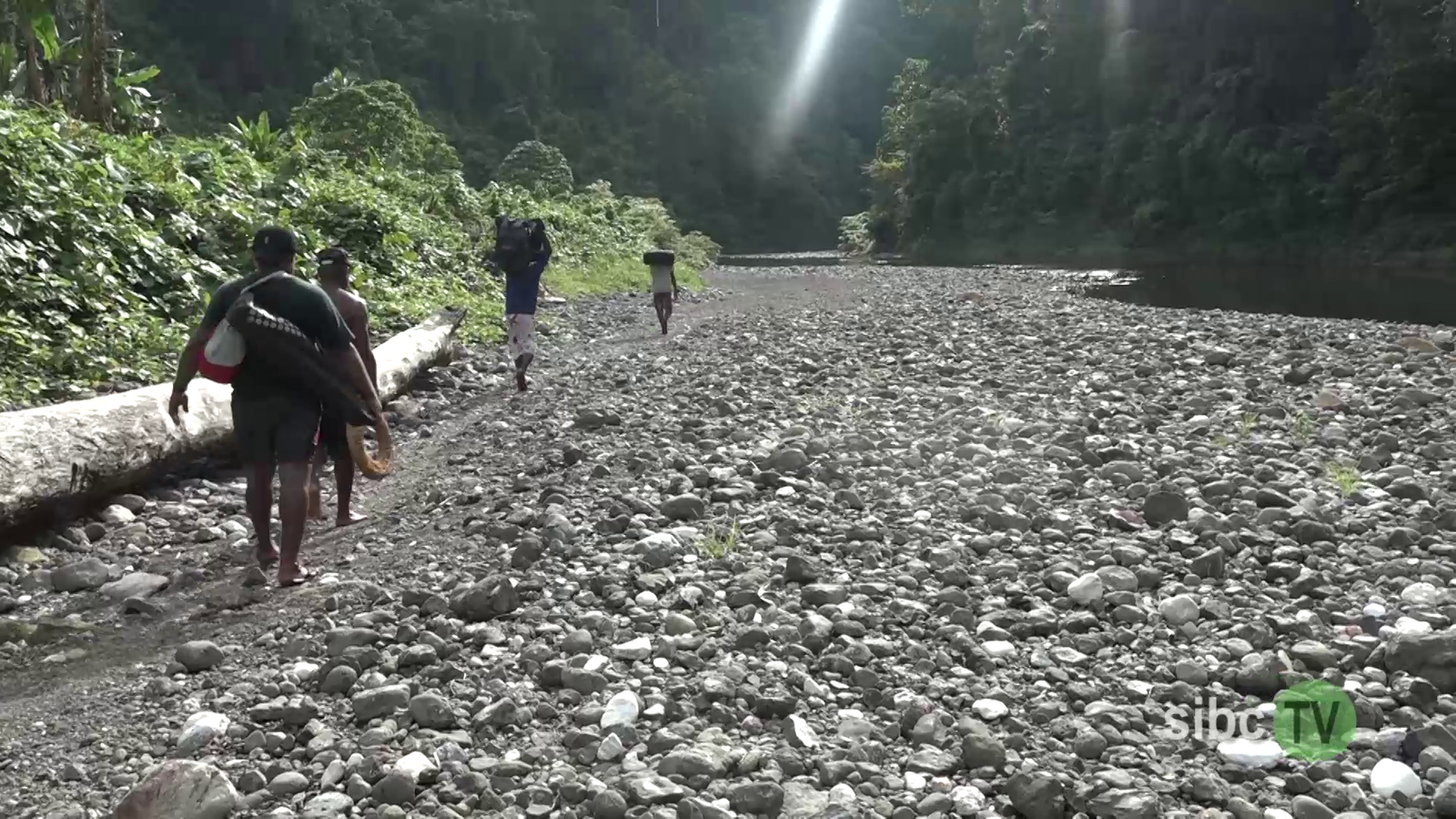Makira left out of vital infrastructure development

The need to have a proper road infrastructure at the East Makira Constituency in Makira Ulawa Province is urgent.
That vital infrastructure benefits will driving more agriculture activities and businesses in the remote province.
It will surely result on boosting economic development, easing off difficulties women and children faced daily on accessing health and education services.
Elders in East Makira constituency felt they have been denied and left out on this vital infrastructure.
Since independence, sea transportation is the only means to accessing government services, apart from walking distances. This can be also unreliable especially during bad weathers because of high sea swells and flooding.
Over the years, a number of people have lost their lives at sea or to flooded rivers.
Elders said, the recent incident on the 9th of June this year (2020) at Na’ana area which resulted on the death of a male resident of Hanegusi Village has sent a strong message to the responsible authorities and landowners that the need for road construction at this constituency is urgent.
A source closed to the incident Mr Alfred Wetara confirmed, the incident occurred on the afternoon of that day, around 3pm, when the deceased was walking home from a logging operation at Na’ana area.
“When he reached Asirugu ( the name of the ridge), we believed he was fell off the ridge as he was wearing a shoe,” Mr Wetara recounts.
He alleged, when the deceased fell off the cliff, he crashed against the rocks under the ridge, resulting on his instant dead.
“It was unusual for him not being home, thus early on the next day, Wednesday 10th June, a search was conducted and finally found him floating in the sea with his body sustained serious injuries,” Mr Wetara recount.
Significantly, this incident should send a strong message that addressing this long standing issue is paramount.
Apart from this incident, a number of area residents expressed their daily challenge as a result of no proper road.
“Life is so difficult in here especially because we don’t have a good road,” Mr Andrew Waro from Wahuhu village emphasized.
Mr Waro said, they always risk their lives before accessing important services like health and education for their children.
He further highlighted, they also have to struggle before selling their produces.
“In terms of garden produces and wet cocoa beans, we have to build rafters so that we can take them down along the Warihito River to sell them, it is very risk at times especially during rainy season,” Mr Waro said.
A lad from Nagau, a village situated 14.5 Kilometers upstream of Warihito River Mr John Weape said, the issue has hindered them to engage on income generating activities.
“I guess, because our village is further inland from the coast, the government has forgotten about us, but from experience, it is very difficult, in terms of accessing health, education and cocoa farmers have to struggle before can sell them to buyers,” Mr Weape emphasized.
Through their struggles to meet the financial challenges to send their children to access education and their daily essence, Mrs Jenny Pazagolo also from Nagau Village said, they have a venue to sell their produces.
“We have a market venue nearby, besides the river but we only do marketing during Saturdays, and because it’s just an open space, it is unreliable especially during rainy seasons,” Mrs Pazagolo said.
It also more concerning during emergencies, when the need to reach health centers is paramount.
Worst still, this constituency also lagging in terms of communication services. Only the eastern end of the constituency has Telekom Towers which the middle and the western end are not accessing their network signals.
Mr Alick Marau from Sumaro Village said, they have been denied on communication services.
“We have been denied on this essential service, as we don’t have any Telekom tower here, this is very challenging for especially those engaging on business as they have to go to Kirakira before accessing the signal.”
“Life is also very challenging during emergencies, because we cannot communicate to medical practitioners quickly,” Mr Marau said.
Junior Rapi from Makohigo Village described their current status in terms of communication service as still at the stone ages.
“We still walking from village to village when there is a need to pass messages to our relatives, just like during the stone ages,”
“But we also part of this country, why are the authorities treating us like this,” Mr Rapi questioned.
He further highlighted lack of road infrastructure has denied them to developing their resources to benefit them.
Meanwhile, a Mother also from Makohigo village, Mrs Julia Kaga said as a result of no communication services and road infrastructure reaching them, criminal activities are increasing in their communities.
“We are experiencing increasing anti-social behaviors in our communities, which causing fear to us women and children, might if we have good road or communication service reaching us, we can easily call to police to attend to such incidents,” Mrs Kahaga emphasized.
The Solomon Islands Ministry of Infrastructure Development deals with the development of important infrastructures to support development.
The mission of the Ministry is to design safe standards for bridges, wharves, or houses as required in natural disasters prone regions, to ensure that shipping and all transport industries operate to safe and efficient standards that ensure passenger and cargo safety, and to ensure that national transportation is well planned, affordable and conducive to both economic growth and social well being, and that government housings, materials, equipment, vehicle fleet, plant and machinery are professionally maintained.
By Allen Waitara
